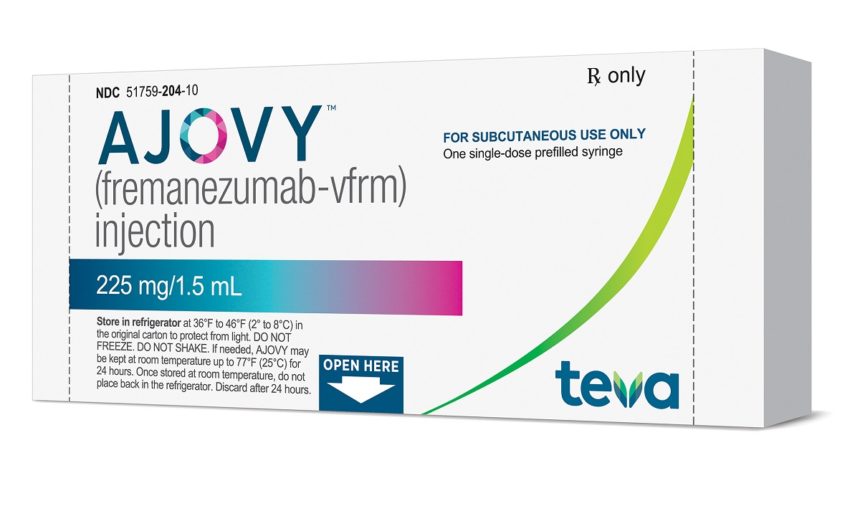Teva just received some much-needed good news. On Friday, the FDA approved Ajovy (fremanezumab), its injectable migraine drug that works by blocking the protein fragment CGRP, for both chronic and episodic migraines.
Ajovy is the second CGRP therapy to be greenlighted by the agency, following the approval of Amgen’s Aimovig (erenumab-aooe) in May. Competition in the space is rapidly heating up. Emgality (galcanezumab-gnlm), a third CGRP medication from Eli Lilly, is expected to be approved this month.
Teva has followed Amgen’s lead on price: Like Aimovig, Ajovy will cost $6,900 per year. The figure is lower than what many analysts had predicted — in a preliminary report, ICER concluded that Aimovig would be cost effective at $8,500 a year for patients who experienced migraines at least 15 times a month — a likely concession by Amgen that if it went any higher, insurers might withhold coverage. (Payers are still pushing back, in some cases requiring that patients show they suffer from a set number of headaches a month and have tried older drugs first.)
Like Aimovig, Ajovy is administered subcutaneously. But unlike Aimovig (and Emgality), which come in auto-injectors, Ajovy is comes in pre-filled syringes. This could be a liability.
“Physicians we spoke with believe that not having an autoinjector will be a limiting factor, as the physicians believe patients may not feel as comfortable self-administering with a PFS compared to an autoinjector,” analysts from Leerink wrote in an investors note. An autoinjector for the drug is in development, but is not expected until the second half of 2019. What’s more, in clinical trials, the syringes had much higher rates of injection site reactions compared with Amgen’s auto-injectors (43% to 45% versus 5% to 6%).
Ajovy does have one advantage over Aimovig: it has been approved as a quarterly dose ($1,725) in addition to a monthly dose ($575). “This could prove to be an important point of differentiation in a class of drugs generally perceived to have similar efficacy and safety profiles,” RBC analysts Randall Stanicky and Kennen MacKay wrote. “The only other CGRP therapy in development with quarterly dosing that we are aware of is ALDR’s eptinezumab, which is about one year behind.”
Leerink analysts were less enthused: “Physicians also were skeptical that the quarterly administration at the physician’s office would be enough of an incremental advantage over monthly autoinjector administration to choose Ajovy,” they wrote. “Physicians also indicated that for quarterly dosing in the future, Alder’s (OP) eptinezumab may be preferred as they believe it has slightly faster onset of action and better efficacy.”
An estimated 39 million Americans suffer from migraine attacks, and Amgen, Teva, Eli Lilly, and Alder will be competing for a multibillion-dollar pie. Leerink predicts that Aimovig will lead the pack, with Ajovy and Emgality battling for second place. (On average, analysts forecast that Aimovig sales will reach nearly $1 billion by 2022. BTIG analyst Timothy Chiang said Ajovy also has the potential to reach $1 billion in annual sales by then, although other analysts have forecasted peak sales of $500 million.)
The strength of the demand for the therapy class was apparent in Aimovig’s launch: weekly prescriptions have skyrocketed, although these numbers are aided by Amgen programs that provide patients with free samples. Teva said it would offer a similar program that eliminates out-of-pocket costs for insured patients.








